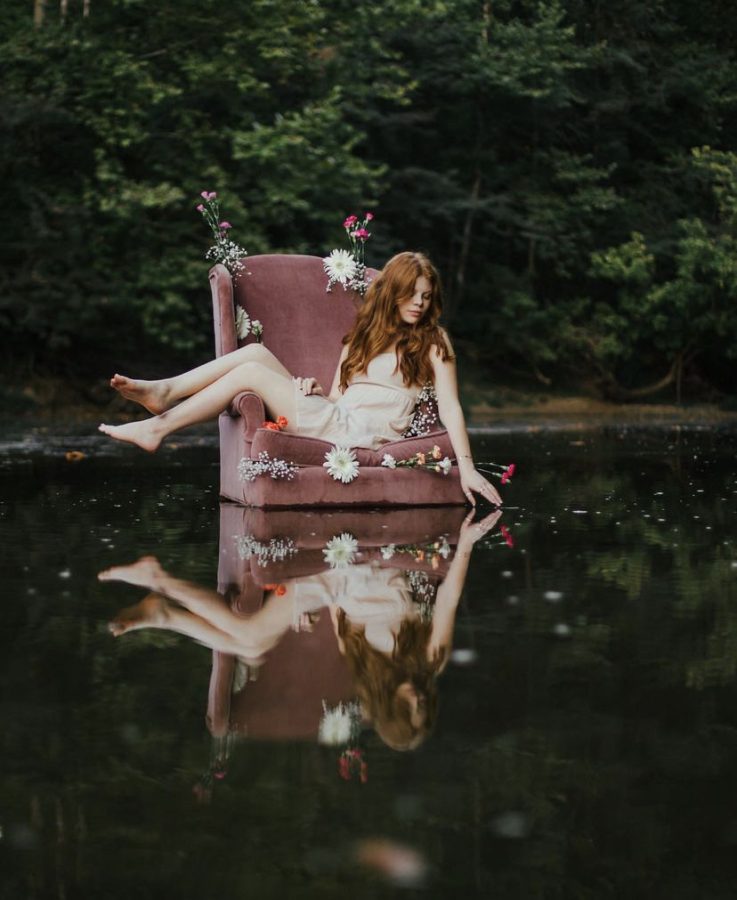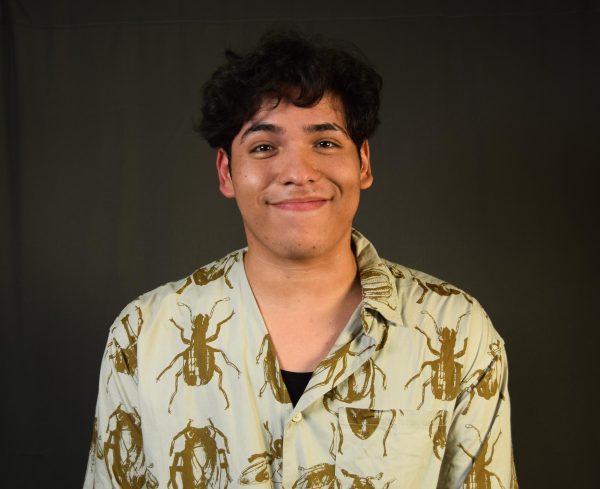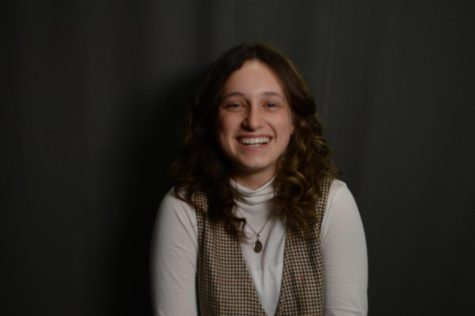A quiet place: How Emily Dukes learned to love the silence
April 27, 2023
For all of Emily Dukes’ 17 years of life, her parents have never heard her voice. Music recitals, acceptance speeches, or even childhood laughter, are all things her parents haven’t heard their daughter participate in. But not because they are absent in her life. Senior Emily Dukes is a KODA—a kid of deaf adults.
Dukes is the only member of her family with the ability to hear. Her mother, father, sister, and brother were born deaf. How can the millions of words that make up the English language be encapsulated into 10,000 different hand signals? Although her situation may sound isolating, Dukes isn’t ashamed of her family’s culture.
“I’ve always had a lot of pride in having a deaf family,” Dukes said.
Despite Dukes’ positive outlook, she recognizes that not every KODA feels the same way.
“I know some of my KODA friends have had moments in their lives where they felt a certain way about having a deaf family,” Dukes said. “But I’ve never been like that. I’m always bragging to people about it.”
Although Dukes is proud of her family and their situation, it doesn’t shield her family from the watchful eyes and judgemental whispers in public settings.
“I think we all pick up on [the harassment],” Dukes said. “I think the sad truth is that my family is just used to it, and I’m used to it. It’s just more so disappointing that that’s something we have to just deal with.”
Occasionally, those watchful eyes and judgmental whispers can turn into violent confrontations for Dukes’ and her family.
“My brother and I went to our playground in the neighborhood, and he’s a kid. Dukes said. “He doesn’t know better when it comes to certain things yet, and these kids saw that he’s deaf, and they started screaming in his ear. My brother was laughing because they were laughing.”
For Dukes’, the experience at the park led her to contemplate the disconnect between people of hearing and people of limited hearing. She wishes people would treat her family like any other group in public.
“Don’t stare,” Dukes said. “Yeah, they speak with their hands. It’s rude to stare. Don’t be pitiful because most, if not all, deaf people are very proud of being deaf. That’s all they’ve ever known.”
Dukes is an artist, not only to honor her father, who studied graphic design and painted all throughout her childhood, but to express her feelings about her family’s situation. She paints, sculpts, and draws. One of her paintings in particular sends a specific message.
“I have very two separate sides of my life. I have this side where I’m involved with music, hearing people, and talking, and jokes,” Dukes said. “Then I have this other side of me, which is this deaf culture side, facial expressions are really important. I actively speak in a different language, and I’m involved in the deaf community.”
Kristen Levy, an art teacher at Noblesville, notices that the effort and the detail that Dukes’ puts into her art, a talent that goes beyond surface level.
“I think telling a story with your art is a special skill,” Levy said. “It already takes patience and finesse to create beautiful work, but to add a story and ensure your viewer understands what you are trying to say is another skill in itself.”
Those two sides of her life are depicted in her untitled KODA art piece. Even with a generally positive outlook, Dukes can’t help but let her mind wander to the things her family won’t be able to experience.
“She[mom] doesn’t know how I laugh. I think about that sometimes. I think about it because every parent knows their child’s voice by heart, but [my parents] have no idea what I sound like,” Dukes said. “No idea.”
This passion for art pushed Dukes into a leadership position with the NHS Art Club. Levy admires the executive role Dukes has taken.
“Emily is an excellent role model to her peers,” Levy said. “She is always showing different techniques and ideas, ending with an incredible work of art that is completely her own.”
Similarly, Gabby Jellison, an officer for the Art Club, has observed the energy Dukes provides to the club.
“She brings a positive attitude towards the club,” Jellison said.
Tori Eshbaugh, a friend of Dukes’ since elementary school, has also observed Dukes’ talent.
“She has always loved art ever since I met her, and it honestly amazes me what she can do,” Eshbaugh said. “It’s been pretty inspiring to watch her grow as an artist and person over the years and to see how her passion for [art] never fades.”
As a person of hearing, Eshbaugh noticed a barrier between her and Dukes’ family.
“When I first met them, I struggled to learn a good way to communicate, since I don’t really know ASL,” Eshbaugh said. “But over the years we have found our ways to communicate.”
Although Dukes’ family conversations may go beyond the traditional form of communication, the way they communicate doesn’t stop from Dukes’ family personality shining through.
“I always loved being around Emily and her family.” Eshbaugh said. “They are really cool people, and I always have a great time when I’m at their house.”
Dukes’ situation can appear lonely, but her family’s love inspires her. Dukes’ biological grandmother passed away when Dukes was five years old and more recently, her adoptive grandmother passed away. A past conversation between them led to a connection of Dukes’ family history
“We were just talking about her family, which led us to going through her biological mom’s old stuff. My mom found an old record that belonged to her biological mom in the ‘70’s. We decided to play it on the record player, and mom was sitting on the bed, and we [were] playing the song, and I interpreted the whole song for her,” Dukes said. “I’m actively listening to the song her [biological] mom listened to, and I’m interpreting it to my mom. My mom [was experiencing] what her mom would listen to and [she] starts tearing up. I start tearing up because my mom is tearing up. It was kind of a sentimental moment for us.”
Exploring her passion for art has allowed Dukes to tell a story of her own and also to inspire others to explore their own creative passions. In her real life and in her art, Dukes believes the voice she has found is uniquely hers.
“I never felt the need to control my volume.” Dukes said. “I could just be free with my voice as I wanted to be.”





